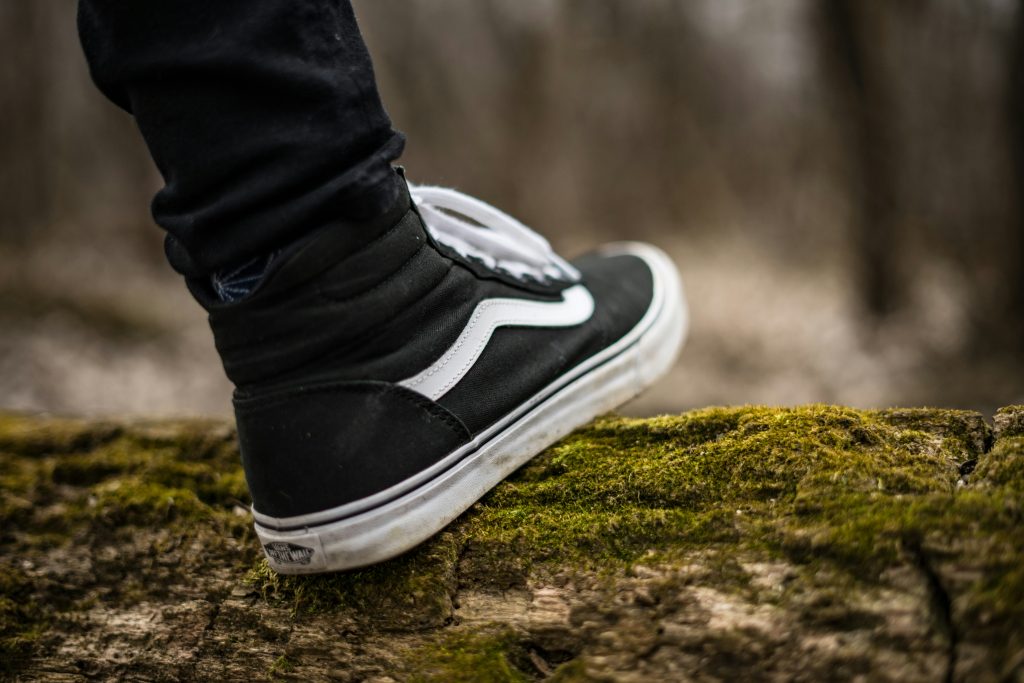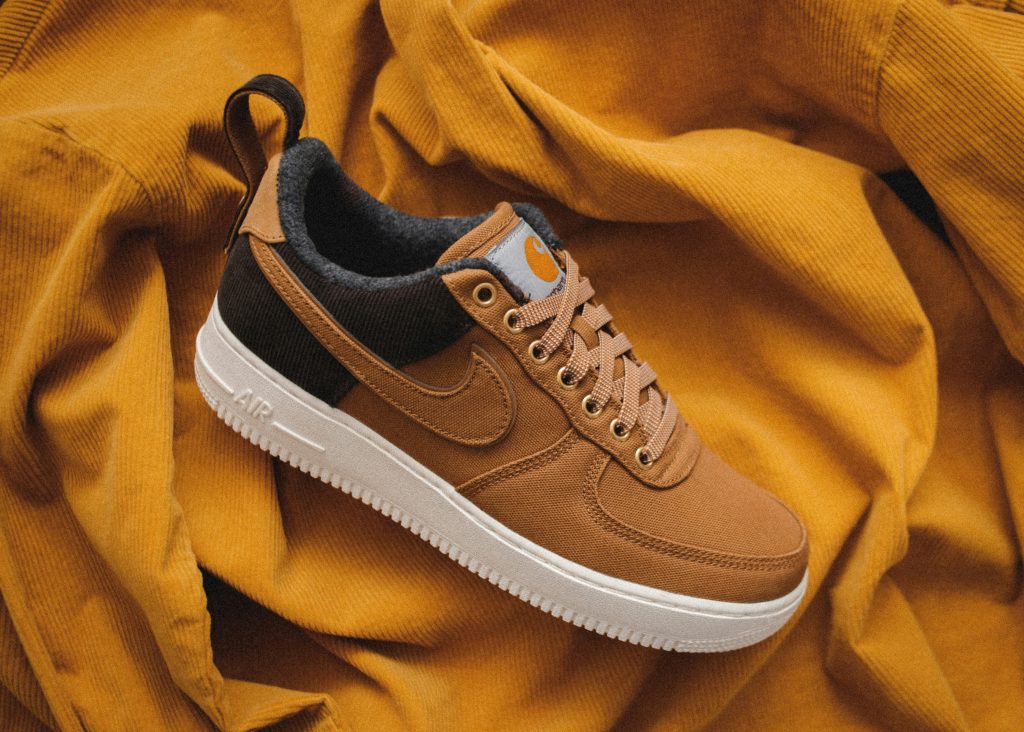Imagine a world where your sneakers not only provide style and comfort, but also contribute to a more sustainable future. With the rise of knit sneakers, this vision is becoming a reality. Knit sneakers, characterized by their seamless, lightweight design, are revolutionizing the footwear industry and making a significant impact on reducing footwear waste. By eliminating the need for excessive stitching and cutting, these innovative sneakers are not only more eco-friendly, but also incredibly durable and versatile. Join the movement towards sustainability and discover the remarkable impact of knit sneakers on reducing footwear waste.

Introduction to Knit Sneakers
Definition and Overview
Knit sneakers are a type of footwear that are made using innovative production techniques, resulting in a seamless and stretchy upper portion of the shoe. This type of construction allows for a more comfortable and flexible fit, as the upper material conforms to the shape of your foot. Knit sneakers have gained popularity in recent years due to their sustainability and environmental benefits.
Key Features and Benefits
One of the key features of knit sneakers is their lightweight and breathable nature. The knit upper allows for better airflow, keeping your feet cool and dry even during long periods of wear. Additionally, the stretchy knit material provides a snug fit, ensuring maximum comfort for the wearer. Another benefit of knit sneakers is their versatility in style. They come in various designs, colors, and patterns, catering to different fashion preferences. Lastly, knit sneakers are known for their durability. The seamless construction eliminates the need for excessive stitching, making them less prone to wear and tear. These qualities make knit sneakers an attractive option for those looking for both style and sustainability in their footwear choices.
Footwear Waste Crisis
Magnitude of the Problem
The footwear waste crisis is a growing concern globally. It is estimated that over 300 million pairs of shoes are discarded every year, contributing to the mounting waste problem. When shoes end up in landfills, they can take years, if not decades, to decompose, releasing harmful chemicals into the environment during the process.
Environmental Impact of Footwear Waste
The environmental impact of footwear waste is significant. Apart from contributing to landfill waste, the production of shoes involves the use of resources like water, energy, and raw materials. Furthermore, the manufacturing process releases greenhouse gases and other pollutants into the atmosphere. By addressing the issue of footwear waste, we can reduce the environmental footprint associated with the entire lifecycle of shoes.
Challenges in Traditional Shoe Manufacturing
Traditional shoe manufacturing methods rely on multiple pieces of material that are sewn or glued together. This process often generates a considerable amount of waste, as excess material is left unused. Additionally, the use of toxic chemicals in adhesives and dyes raises concerns regarding worker safety and environmental pollution. These challenges highlight the need for more sustainable and efficient alternatives in shoe production.
Knit Sneakers as a Sustainable Solution
Innovative Production Techniques
Knit sneakers are revolutionizing the footwear industry with their innovative production techniques. Unlike traditional manufacturing methods, knit sneakers are made using 3D knitting machines that create the entire upper portion of the shoe in one piece. This eliminates the need for excess material and reduces waste significantly. The precise control offered by these machines ensures a perfect fit and seamless construction, providing unmatched comfort to the wearer.
Reduced Material Consumption
One of the primary advantages of knit sneakers is their reduced material consumption. By utilizing 3D knitting machines, manufacturers can optimize the use of materials, resulting in minimal waste. Unlike traditional shoe manufacturing, where excess materials are discarded, knit sneakers maximize efficiency by using only the necessary amount of yarn for each shoe. This reduction in material consumption not only reduces waste but also conserves resources.
Customizable and Repairable Designs
Knit sneakers allow for customizable and repairable designs, further emphasizing their sustainability. The seamless nature of the knit upper makes it easier to add personalized designs or patterns during the manufacturing process. Additionally, the stretchy and flexible knit material allows for easy repairs, extending the lifespan of the shoes. By enabling customization and repairability, knit sneakers encourage a culture of conscious consumption and reduce the frequency of shoe replacements.
Advantages of Knit Sneakers
Comfort and Fit
One of the standout advantages of knit sneakers is the comfort and fit they offer. The stretchy and breathable nature of the knit upper allows it to adapt to the shape of your foot, providing a snug and comfortable fit. This eliminates the need for excessive cushioning or padding, reducing the weight of the shoe and enhancing overall comfort. Whether you’re going for a long walk or participating in a high-intensity workout, knit sneakers offer a level of comfort that is hard to match with traditional footwear.
Lightweight and Breathable
Knit sneakers are known for their lightweight and breathable attributes. The knit upper allows for better ventilation, preventing excessive sweat and moisture buildup. This breathability not only keeps your feet dry but also reduces the risk of odors and fungal infections. The lightweight nature of knit sneakers makes them ideal for activities that require agility and flexibility, as they do not weigh you down or impede your movements.
Versatility and Style
Another advantage of knit sneakers is their versatility in style. With a wide range of designs, colors, and patterns available, there is a knit sneaker to suit every fashion preference. Whether you prefer a minimalist look or bold and vibrant patterns, there is a knit sneaker that can elevate your style. The versatility of knit sneakers makes them suitable for various occasions, allowing you to effortlessly transition from casual outings to more formal events without compromising on style or comfort.

Reduction of Waste from Knit Sneakers
Minimizing Scrap Materials
Knit sneakers excel in minimizing scrap materials during the manufacturing process. With traditional shoe production, excess material is often discarded, leading to unnecessary waste. However, with knit sneakers, the 3D knitting machines only use the exact amount of yarn necessary for each shoe, minimizing the generation of scrap materials. This reduction in waste not only benefits the environment but also reduces production costs for manufacturers.
Waste Reduction in Production Process
The production process of knit sneakers is designed to minimize waste generation. Unlike traditional shoe manufacturing, which involves cutting and stitching different pieces of material, knit sneakers are produced as a single unit. This eliminates the need for excess materials, glue, or stitching, resulting in a more streamlined and efficient process that significantly reduces waste. Additionally, manufacturers can recycle and reuse any leftover yarn, further minimizing waste and promoting sustainability.
Extended Lifespan and Improved Durability
Knit sneakers have a reputation for their extended lifespan and durability. The seamless construction of the knit upper eliminates weak points where traditional shoes often experience wear and tear. Additionally, the stretchy and flexible nature of the knit material allows it to adapt to the shape of your foot, reducing friction and preventing excessive strain on the shoe. These qualities combine to create footwear that has a longer lifespan and withstands the rigors of daily use, ultimately reducing the frequency of shoe replacements and further minimizing waste.
Recycling and Disposal of Knit Sneakers
Sustainable End-of-life Options
When it comes to the end-of-life options for knit sneakers, sustainable solutions are emerging. Some manufacturers are implementing take-back programs, where customers can return their worn-out knit sneakers to be recycled or repurposed. Additionally, recycling facilities are being developed to process old knit sneakers and separate the materials for reuse. By providing sustainable end-of-life options, the lifespan of knit sneakers is extended, and the environmental impact of their disposal is mitigated.
Supporting Circular Economy
The recycling and disposal of knit sneakers play a crucial role in supporting the circular economy. By properly recycling and repurposing materials, the resources used to create knit sneakers can be reintroduced into the manufacturing process, reducing the need for virgin materials. This closed-loop approach not only minimizes waste but also conserves valuable resources and reduces the environmental impact of shoe production. The circular economy model ensures that knit sneakers can contribute positively to sustainable fashion practices.
Reducing Landfill Waste
By recycling knit sneakers and diverting them from landfills, the amount of waste sent to these facilities is reduced. With the increasing demand for sustainable footwear, the disposal of old knit sneakers in landfills can be minimized. This reduction in landfill waste helps alleviate the strain on these sites, reduces the release of harmful chemicals into the environment, and contributes to a cleaner and healthier planet.

Consumer Behavior and Knit Sneakers
Growing Demand for Sustainable Footwear
Consumer behavior plays a vital role in driving the demand for sustainable footwear, including knit sneakers. As people become more environmentally conscious, they are actively seeking out products that align with their values. The growing demand for sustainable footwear has led to an increase in the availability and variety of knit sneakers in the market. With consumers prioritizing sustainability, the popularity of knit sneakers is expected to continue to rise.
Changing Perspectives on Fashion Consumption
Consumer perspectives on fashion consumption are shifting towards more ethical and sustainable choices. The fast fashion industry, with its emphasis on disposable and trend-driven clothing, is being scrutinized for its negative environmental and social impacts. As a result, consumers are becoming more mindful of their purchasing decisions and opting for durable, high-quality, and sustainable products like knit sneakers. By choosing products with long lifespans and reduced environmental footprints, consumers are actively contributing to a more sustainable fashion industry.
Supporting Ethical and Eco-friendly Brands
Consumer demand for sustainable footwear has led to the rise of ethical and eco-friendly brands that prioritize responsible manufacturing practices. These brands often provide transparency in their supply chains, ensuring fair wages and safe working conditions for their employees. By supporting these brands and their commitment to sustainability, consumers can make a positive impact on the fashion industry while enjoying the comfort and style of knit sneakers.
Corporate Responsibility and Manufacturing
Adoption of Sustainable Practices
Many shoe manufacturers are recognizing the importance of sustainable practices and are actively working towards integrating them into their manufacturing processes. By adopting sustainable practices, such as using recycled materials, reducing waste, and implementing energy-efficient production methods, these companies are contributing to the overall reduction of the footwear waste crisis. Additionally, some manufacturers are investing in research and development to improve the recyclability and biodegradability of their products, further advancing sustainable footwear options like knit sneakers.
Promotion of Transparent Supply Chains
Corporate responsibility extends beyond the manufacturing process itself. Shoe manufacturers are increasingly promoting transparency in their supply chains. By providing information about the origin of their materials, the production methods used, and the working conditions of their employees, these companies offer consumers the opportunity to make informed decisions about the sustainability and ethics of their purchases. Transparent supply chains ensure accountability and empower consumers to support brands that align with their values.
Reduced Environmental Footprint
By integrating sustainable practices into their manufacturing processes, shoe companies can substantially reduce their environmental footprints. From minimizing waste and carbon emissions to conserving resources, these initiatives contribute to a more sustainable and responsible footwear industry. Companies that prioritize reducing their environmental footprint not only benefit the environment but also position themselves as leaders in the sustainable fashion movement, attracting conscious consumers who value ethical and eco-friendly products like knit sneakers.
Innovations and Future Implications
Advancements in Knit Technology
As technology continues to advance, new innovations in knit technology are expected to emerge. These advancements will further improve the production efficiency, comfort, and durability of knit sneakers. From enhanced moisture management to biodegradable knit materials, the future of knit sneakers looks promising. By staying at the forefront of technological advancements, manufacturers can continue to offer sustainable and innovative solutions to the footwear waste crisis.
Integration of Recycled and Biodegradable Materials
The integration of recycled and biodegradable materials is a key focus for the future of knit sneakers. By using recycled yarn or incorporating biodegradable materials, manufacturers can further reduce their environmental impact. This not only helps divert waste from landfills but also promotes the development of more sustainable supply chains. The use of recycled and biodegradable materials is an exciting avenue for the ongoing improvement of the sustainability and eco-friendliness of knit sneakers.
Potential for Industry-wide Adoption
With the numerous ecological and social benefits they offer, knit sneakers have the potential for industry-wide adoption. As consumer demand for sustainable footwear continues to rise, it is expected that more shoe manufacturers will embrace the technologies and methodologies associated with knit sneakers. This shift towards sustainable practices in the footwear industry can positively impact the environment on a larger scale, reducing waste, conserving resources, and promoting a more responsible approach to fashion consumption.
Conclusion
Environmental and Social Benefits of Knit Sneakers
Knit sneakers have a transformative impact on the reduction of footwear waste. Their innovative production techniques, reduced material consumption, and customizable designs position them as a sustainable solution to the environmental challenges posed by traditional shoe manufacturing. By minimizing waste, extending their lifespan, and offering recycling options, knit sneakers contribute to the circular economy and help reduce the strain on landfills. Moreover, knit sneakers satisfy the growing demand for sustainable footwear, changing perspectives on fashion consumption, and supporting ethical and eco-friendly brands.
Role of Consumers and Businesses in Sustainable Fashion
The adoption of knit sneakers and other sustainable footwear options relies on the choices and actions of both consumers and businesses. Consumers play a crucial role by prioritizing sustainability, supporting ethical brands, and demanding more eco-friendly products. By opting for knit sneakers, consumers can contribute to waste reduction and the support of responsible manufacturing practices. On the other hand, businesses have the responsibility to adopt sustainable practices, promote transparency in their supply chains, and reduce their environmental footprints. By working together, both consumers and businesses can create a positive shift towards a more sustainable fashion industry, with knit sneakers at the forefront of this transformation.


